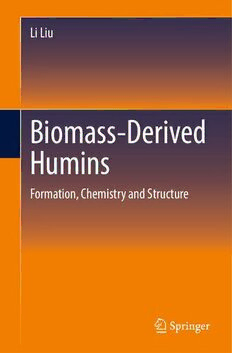
Biomass-Derived Humins: Formation,Chemistry and Structure PDF
151 Pages·2023·5.274 MB·English
Most books are stored in the elastic cloud where traffic is expensive. For this reason, we have a limit on daily download.
Preview Biomass-Derived Humins: Formation,Chemistry and Structure
Description:
This book provides a unique perspective on atom economical utilization of biomass resources into value-added productions. Humins are inevitably formed during the process of biomass conversion, which compete with desired products, restrain the activity of catalyst and hinder the recycling of catalyst and separation of products. To further improve the efficiency of biomass conversion toward downstream products, unambiguous elucidation of the chemical structure and formation mechanism of humins are prerequisite. This book primarily presents the chemical structure analysis and formation mechanism of various biomass-derived humins, from simple molecular models to raw biomass resources. The chemical similarities and differences of various biomass-derived humins have been systematically summarized according to advanced analytical interpretation, which offers a comprehensive viewpoint for readers with chemistry, engineering and material backgrounds. Furthermore, the progress that has been achieved on humins valorization and future perspectives are discussed. Given its scope, this book can be treated as an informative resource for undergraduates, postgraduates, lecturers and researchers interested in biomass conversion from academia and industry from entry to professional levels.
See more
The list of books you might like
Most books are stored in the elastic cloud where traffic is expensive. For this reason, we have a limit on daily download.
